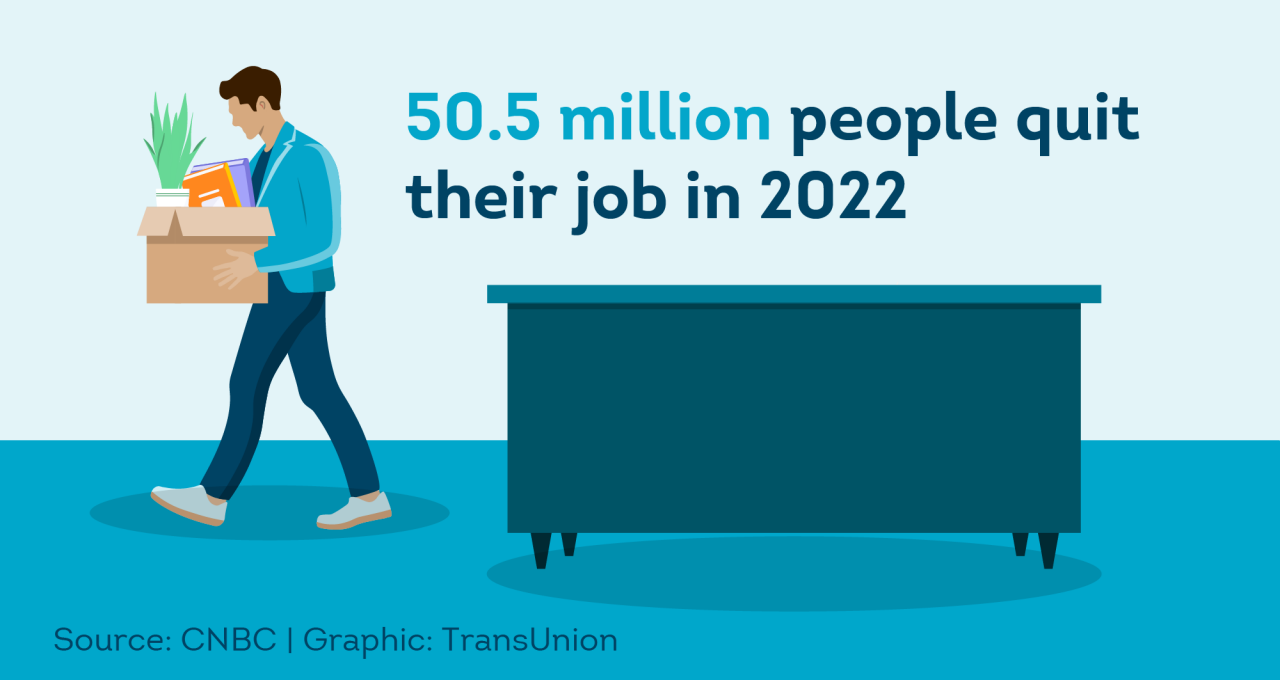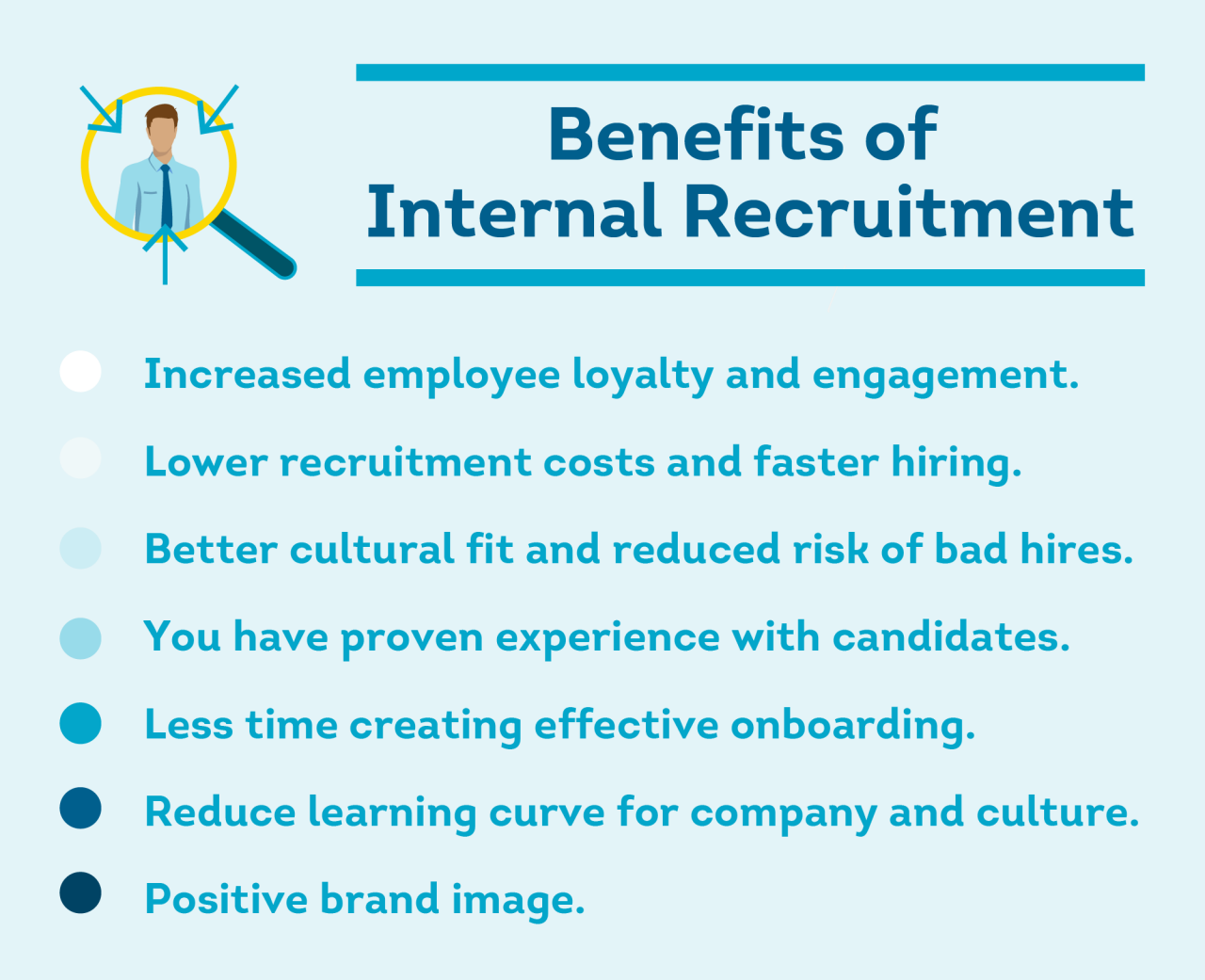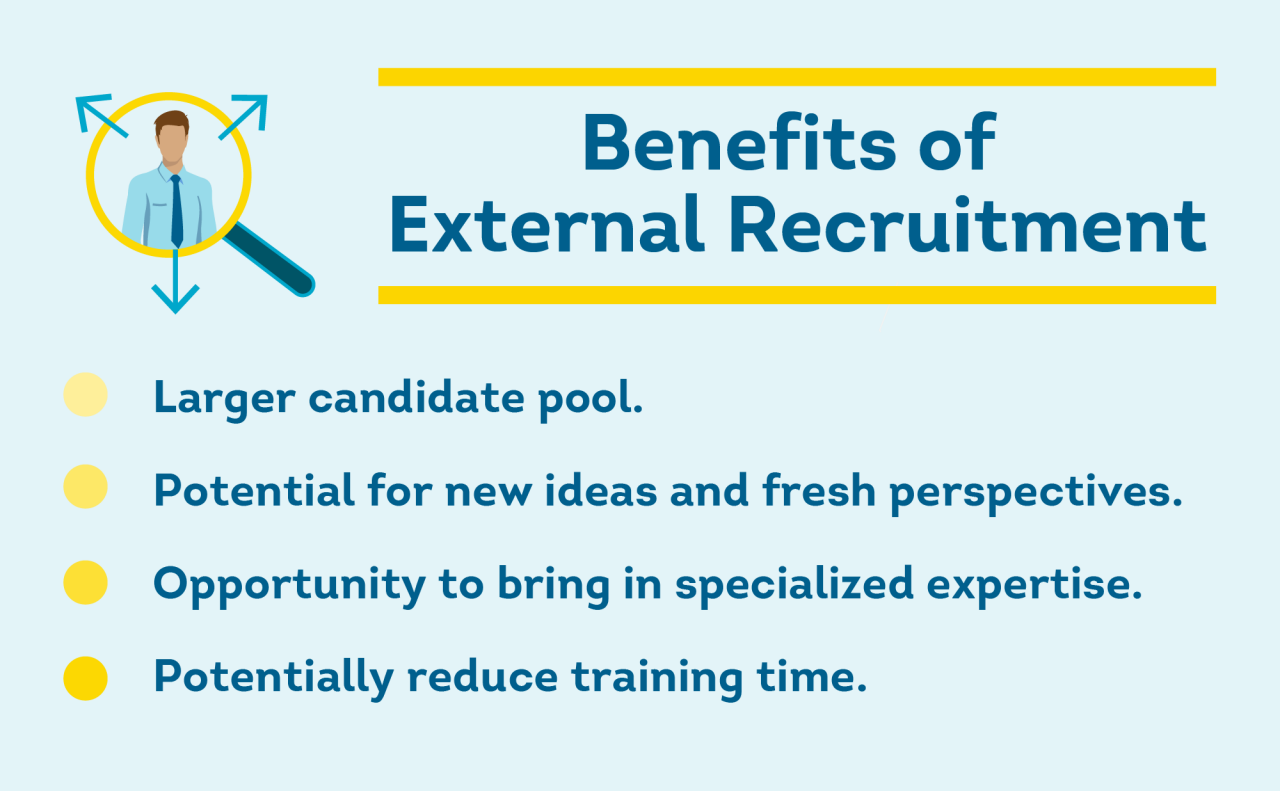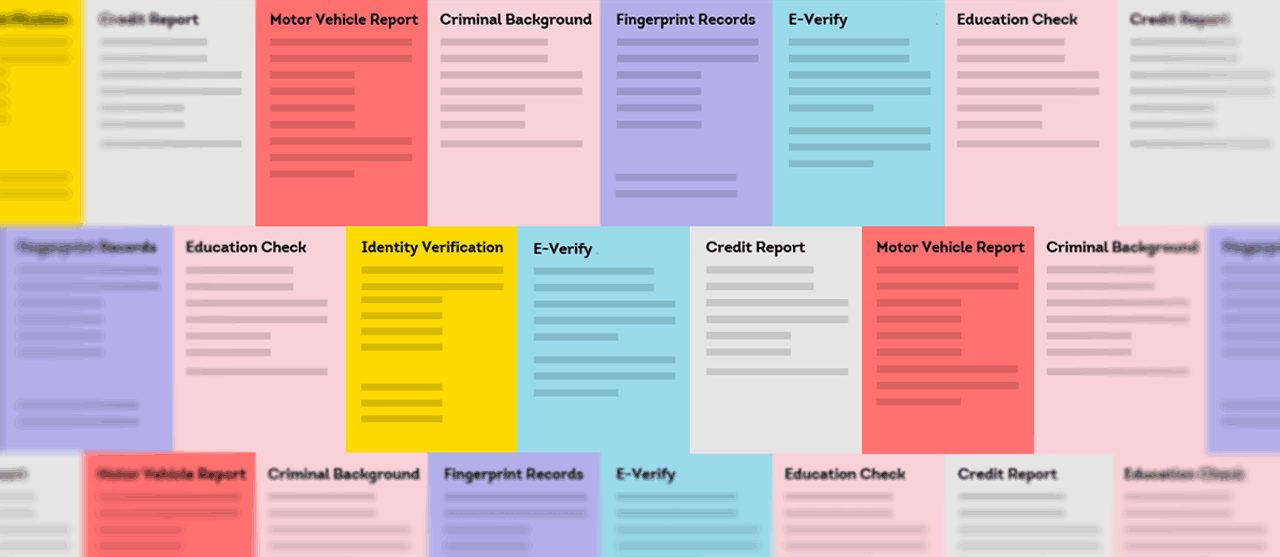It can be hard for small business owners to know when it’s better to do internal vs external recruitment. In general, internal recruitment works when time and resources are limited, existing employees have the necessary skills, and a deserving person awaits promotion. External recruitment suits best when specialized skills are lacking internally, there's a budget for hiring, or current employees aren't prepared. The best method depends on specific circumstances and objectives. To start, it’s good to analyze your skill availability, business goals, budget constraints, and the need for fresh perspectives.
Remember that this material is intended to provide you with helpful information and is not to be relied upon to make decisions, nor is this material intended to be or construed as legal advice. You are encouraged to consult your legal counsel for advice on your specific business operations and responsibilities under applicable law. Trademarks used in this material are the property of their respective owners and no affiliation or endorsement is implied.
In the game of business, every decision you make can have significant consequences. Just like in chess, one wrong move now can mean setting yourself up for future failure. Only, in your business, the stakes are much higher than a simple game.

How Internal Recruitment Impacts Your Organization
It can be hard to know how to find great workers for your small business. Thankfully, sometimes they’re right under your nose
With internal recruitment, you fill job vacancies from within your own organization. It gives your current employees a chance to level up and take on new challenges. Internal recruitment also taps into your existing team's skills and potential. However, while this method can be a goldmine, it’s not always so shiny.

According to CNBC, 50.5 million people quit their jobs in 2022. This left a lot of market openings––and a lot of companies open to the potential danger that comes with hiring. Recruiting for open positions is fraught with potential risks like lawsuits, fallout from employee turnover, and candidates misrepresenting themselves or even outright lying on hiring materials.
For small businesses, the threat is even higher. Unlike in big companies, small businesses can’t always absorb the cost and morale hit of a malicious, unproductive, or even just incompetent employee. This is why many companies weigh the pros and cons of interval vs. external recruitment when positions open up.
Promoting from within can be just as damaging to your business, often in less expected ways. Because of this danger, internal promotions are one of the key times when you should run a background check to help protect your business.
Whether you're promoting from within or hiring outside, it’s important to run pre-employment screening with a professional service like ShareAble for Hires® anytime you put someone in a new job.
This article explores internal vs. external recruitment to help you find the best people for the job. Here’s what to expect:
Benefits of Internal Recruitment
It’s no surprise that internal recruitment has many benefits. After all, inside candidates have already been vetted. You’ve already seen them in action. According to LinkedIn, internal recruitment carries the following advantages:
- Increased employee loyalty and engagement. Having room for growth and a clear path forward is one of the most effective employee retention strategies and can lead to more happiness and increased productivity.
- Lower recruitment costs and faster hiring. Hiring is expensive. Promoting from within can reduce the need for formal job processes that siphon precious time and money resources.
- Better cultural fit and reduced risk of bad hires. Existing employees are already familiar with the company’s values and culture. They know what to expect and how they fit in with the bigger picture.
- You have proven experience with candidates. You conduct employer reference checks to explore how candidates behaved in previous jobs. With internal candidates, you already have first-hand experience of their abilities, attitude, and work ethic.
- Less time creating effective onboarding. Internal candidates are already familiar with company culture, policies, structures, and systems, which typically means less time onboarding for new positions.
- Reduce learning curve for company and culture. Similar to the above, internal candidates only need to learn the new responsibilities and expectations for the job––not the entire company.
- Positive brand image. Customers like brands that believe in themselves, and part of that is believing in their current employees. Promoting existing employees can make you look better from the outside.
How Internal Hiring Can Lead to Trouble
While internal recruitment has many advantages, it’s not always sunshine and roses. Hiring site Indeed explains the other side of the coin with some disadvantages of internal recruitment:
- Limited pool of candidates. Hiring from your existing talent means your only hiring from the best you currently have, not the best possible candidates. Outside experts can potentially bring more advanced skills to the table than what your current employees offer.
- Risk of creating a stagnant or insular culture. Sometimes companies need an injection of new energy and ideas to boost innovation and push boundaries even farther. Retaining only the same set of people limits you to the same set of perspectives, ideas, and ways of doing things.
- Potential for internal conflicts, jealousy, or favoritism. Hiring from the inside can cause drama and friction on the team, especially if someone’s former peer is now a supervisor or manager. If the reason for the promotion is not crystal clear and widely supported, it can lead to a breakdown of team dynamics.
- Risk of unfair promotions. Hiring internally can also raise questions about motivation, especially if promotions are based on seniority and not skills, merit, or the ability to do the job. Promoting an ill-fitting person can destroy productivity and tank morale.
How External Recruitment Impacts Your Organization
External candidates can bring industry know-how, cool ideas, and a wider network to help your organization grow. Hiring from outside your organization may take more time and money. However, there are also some great perks associated with a bigger talent pool and fresh viewpoints.

Benefits of External Recruitment
Here are some of the top benefits of hiring from the outside:
- Larger candidate pool. With more candidates to choose from, you can cultivate a more experienced, talented, and diverse pool that far exceeds your current team’s abilities. While sorting through candidates, you might also find people with complementary skills you didn’t even know you wanted.
- Potential for new ideas and fresh perspectives. Whether you want to recruit millennial employees or workers with a special skill set, injecting new ways of thinking can improve your business processes and bottom line.
- Opportunity to bring in specialized expertise. Opening your job to the outside can help you find the most-qualified person for a job, rather than just trying to make do with what you have.
- Potentially reduce training time. When it comes to specialized skills, such as design, QA, or programming, it may be less work to hire externally. Hiring someone who is already an expert in the work may be more efficient than trying to train up current staff.
How External Hiring Can Lead to Trouble
While hiring outsiders could be the exact shot in the arm your business needs, there are several drawbacks to consider.
- Increased risk of hiring lawsuits. Anytime you bring a new person into your business, there’s a risk of negligent hiring lawsuits. Outside hires haven’t proven themselves like internal candidates. This can mean a riskier choice––and more reason to conduct thorough employee screening.
- Higher spend on salary. According to research from the University of Pennsylvania, external candidates typically earn 18% to 20% more than their internally promoted counterparts. This means you may need to increase your compensation budget.
- Risk of cultural mismatches and slower integration. It’s devastating to spend thousands of dollars on hiring and months training someone, only for them to leave in the first 90 days because it’s not a good fit. The same UPenn article linked above also says that outside hires get worse reviews than internal candidates for the first two years.
- Higher recruitment costs and longer hiring process. Searches can cost thousands of dollars and takes weeks, or even months, to complete. Promoting from within can take a matter of days. It’s important to consider costs and benefits when making decisions.
- Element of the unknown. Your external hire could be the best thing that’s ever happened to your small business––or they could be a corporate spy who faked all of their credentials. External candidates require even more thorough pre-employment screening than internal job seekers.
- Potential for higher turnover and lower employee loyalty. Employees who receive promotions are more likely to stick around and feel valued. People who constantly jump from job to job are more likely to leave your position when the timing suits them.
Top Tips for Managing Internal and External Recruitment
These tips for optimizing the recruitment process can help you save time, no matter where your candidates are coming from.
1. Where to Post Positions: Knowing where and how to share open positions is one great way to improve your recruitment efforts. There are some similarities and differences between recruitment for internal and external candidates.

Internal Recruitment Methods
To recruit internally, you can publicize openings with the following methods:
- Physical bulletin boards on-site
- Internal email lists
- Internal communication servers like Slack
- Get nominations from supervisors
- Check for “internal candidate” only options on any HR or hiring software you use
- Have managers bring up opportunities in group and individual meetings
Pro Tip: Meetings shouldn’t only occur when something’s wrong. Having regular one-on-one meetings to discuss progress and goals is one of the best strategies for reducing employee turnover.
External Recruitment Methods
When hiring from the outside, here are some ways to publicize open jobs:
- Post on the most popular job websites
- Company-owned website and social pages
- External recruitment agencies
- Industry-relevant job boards
- Consider referrals from current employees

2. How to screen candidates: Whether hiring internal or external candidates, it’s essential to have a robust screening plan in place. There are many types of background checks that you might conduct manually or through a professional service.
For both internal and external candidates, you should do at least the following:
- Criminal background check. Check your next hire’s data against nearly 400 million federal and state-level arrest, conviction, and other records. This criminal record check helps you discover if they have any past, relevant crimes that could threaten your organization.
- Identity verification. Confirm if your candidate is really who they say they are. Identity verification checks your applicant’s self-reported biographical information against several key, official databases to help confirm they’re actually who they claim.
- Credit check. Employee credit checks provide valuable insight into a candidate's financial history and responsibility. They can also help reveal patterns of financial instability or potential conflicts of interest. Backed by major credit agency TransUnion, FCRA-compliant ShareAble for Hires credit reports are easy-to-read and delivered in just minutes.
Internal vs. External Recruitment: Which is Better for Your Company?
When deciding whether to promote from within and seek elsewhere, there are a few things to consider:
- Current employee experience and potential. Do you have the desired skills in-house already? Do you have employees capable of doing the job well? If not, will it cost more to train someone for the job or hire someone that already has the skills?
- Business needs and goals. What are you planning for the future of your business? How would an outside expert impact that plan? Promoting from within is great for stability and maintaining businesses as usual. However, if you really want to shake things up or take things to the next level, maybe getting some fresh perspectives is the way to go.
- Available budget and resources. External recruitment almost always costs more. If money is the most important aspect, then internal may be the better choice. However, just remember that promoting the wrong person may be more expensive in the long run
Pro-Tip: Make sure you promote for the right reasons. Promoting from within can be great for employee retention, but can backfire if employees see the promotion as a result of nepotism or convenience rather than merit or skill level.
So, which recruitment method is better for my small business?
The answer is: it depends. The specific vary with every case. But, in general:
Internal recruitment might be better when:
- You’re really short on time and money
- You already have all the necessary skills in-house or it won’t be hard to train someone
- You have a high-quality employee who is good at the job and deserves a promotion
External recruitment might be better when:
- You need specialized skills you don’t currently have in-house
- You have the budget to find the exact right person rather than making do
- You don’t have the skills in-house already (or it would be really hard to train someone)
- Your current employees are not ready for the challenge, skill-level, or responsibilities the promotion requires
Help Make Better Recruitment Decisions with ShareAble for Hires
No matter where your candidates come from, it’s essential to run sufficient background checks before letting them on the team. After all, hiring without screening is like playing chess and only looking at your own pieces. Sooner or later, you’re going to lose. Make better strategic moves with fast, flexible employment screening through ShareAble for Hires.
Has your star employee been compensating for some less-than stellar behavior? Help find out before promoting them. Detailed, FCRA-compliant credit report reveals financial patterns and debts, helping you assess if they’re still as trustworthy as you thought.
Whether hiring from inside or outside your organization, you can never be too careful about the safety of your current staff, customers, and livelihood. A criminal background check swiftly scans millions of records to identify any biographical matches with your new addition. Knowing if they have a history of relevant crimes can help you make better hiring decisions.
Is your outside job applicant even who they say they are? Identity verification helps confirm the accuracy of the information on their application form. Knowing you can trust them boosts confidence in the safety and future of your nonprofit.
With near-instant on-demand reports and small business-friendly pricing, get the screening you need without delays or complicated processes. There are no applications, subscriptions, hidden fees, or barriers to worry about. Simply create a free account and start screening immediately.
Don’t let calculating contenders back you into a corner. Turn the tables on would-be threats with flexible, online employee screening through ShareAble for Hires.
ShareAble for Hires
Sign-up Now. Reports Now. Hire Now.







